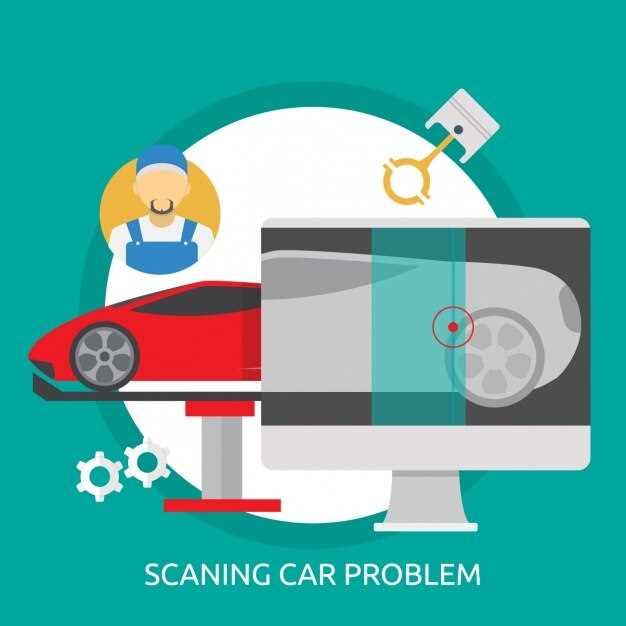
When it comes to enhancing vehicle performance, ECU tuning has become a popular topic among car enthusiasts and everyday drivers alike. However, misconceptions surrounding ECU tuning can lead to confusion and, in some cases, costly mistakes. This article aims to clarify these pervasive myths to help car owners make informed decisions about their vehicles.
One of the most common myths is that tuning the Engine Control Unit (ECU) will automatically void a vehicle’s warranty. While it is true that modifications can impact warranty coverage, many manufacturers offer tuning options that are compliant with warranty requirements. Understanding the nuances of your car’s warranty is essential before jumping to conclusions.
Another prevalent myth is that ECU tuning is only beneficial for racing vehicles. On the contrary, even daily drivers can experience improved fuel efficiency and smoother acceleration through proper tuning. This makes ECU tuning a viable option for any car owner looking to enhance their driving experience.
In the following sections, we will delve deeper into these myths and others, providing clear and factual information to empower car owners. By debunking these common misconceptions, we hope to encourage more informed decisions regarding ECU tuning and its many benefits.
Understanding the Impact of ECU Tuning on Vehicle Performance

ECU tuning, or engine control unit tuning, refers to the process of modifying the software that dictates how your vehicle’s engine operates. This adjustment can significantly alter various parameters such as fuel delivery, ignition timing, and boost pressure, ultimately leading to changes in performance characteristics.
Power Gains: One of the most prominent impacts of ECU tuning is the potential increase in horsepower and torque. By optimizing the fuel-to-air ratio and ignition timing, tuned vehicles often exhibit improved acceleration and overall responsiveness. Manufacturers usually restrict engine performance for reasons such as fuel economy and emissions compliance; tuning can unlock hidden power by removing these restrictions.
Fuel Efficiency: Contrary to the common belief that tuning only increases power, many vehicles can achieve better fuel efficiency. Properly executed ECU tuning can enhance the combustion process, leading to more efficient fuel usage. However, this benefit largely depends on the driver’s behavior post-tuning–aggressive driving can negate fuel savings.
Driving Experience: Tuning can greatly enhance the driving experience by improving throttle response and modifying the engine’s characteristics to suit personal preferences. Drivers may notice smoother acceleration, quicker engine response, and an overall more engaging performance. This tailored approach allows owners to enjoy their vehicles in new ways.
Potential Risks: While tuning offers numerous benefits, it is essential to acknowledge possible downsides. Poorly executed tunings can lead to engine damage, increased wear on components, and may void manufacturer warranties. Selecting a reputable tuner and ensuring compatibility with your vehicle are crucial steps to mitigate potential risks.
Evolving Technologies: With advancements in automotive technology, modern vehicles often come equipped with more sophisticated ECUs that can self-adjust to some extent. This means that tuning might not be as straightforward as in older models. Understanding your particular vehicle’s systems and capabilities is vital for effective tuning.
ECU tuning can transform vehicle performance significantly, enhancing power, efficiency, and overall driving enjoyment. However, careful consideration and professional expertise are necessary to avoid potential pitfalls and ensure lasting benefits.
Addressing Concerns About Warranty Implications of ECU Modifications

One of the most pressing concerns for car owners considering ECU modifications is the potential impact on their vehicle’s warranty. Many believe that any alteration to the vehicle’s engine management system automatically voids warranty coverage. However, this isn’t always the case.
The Magnuson-Moss Warranty Act, which governs warranties in the United States, stipulates that manufacturers cannot invalidate a warranty simply because a consumer has made modifications. A manufacturer must prove that the modification directly caused the damage in question before denying a warranty claim. This means that while it’s possible for an ECU tune to lead to warranty issues, it is not a guarantee.
To mitigate the risk of warranty complications, car owners are advised to carefully consider their tuning options. Opting for reputable tuning companies that provide industry-specific solutions can help. These companies often have a track record of successful products that are more likely to keep warranty claims intact. Additionally, many settings can be reverted to original factory parameters, which can help in case of a service visit.
Another important factor is transparency with your dealership. Informing service personnel about any modifications can lead to a more cooperative approach when maintenance issues arise. Some manufacturers even offer performance tuning packages that maintain warranty coverage, providing a safer route for those seeking enhanced performance.
In summary, while ECU modifications can raise warranty concerns, understanding your rights and taking proactive steps can help protect your vehicle’s warranty. It is essential to stay informed and choose modifications wisely to safeguard your investment.
Evaluating the Legality and Environmental Effects of ECU Tuning
ECU tuning, while popular among car enthusiasts, raises important questions regarding legality and environmental impact. The legal status of ECU tuning can vary significantly by region. In some countries and states, modifications that affect emissions control systems are strictly regulated. Tuning that leads to increased emissions can result in fines or the inability to pass inspection tests. Car owners should familiarize themselves with local laws to avoid potential legal issues stemming from non-compliance with emissions regulations.
Another consideration is the impact of ECU tuning on vehicle emissions and overall environmental footprint. While tuning can improve performance and efficiency in some cases, it may also lead to increased exhaust emissions if not done properly. Tuning that optimizes fuel-air mixtures and enhances combustion efficiency can reduce harmful emissions; however, aggressive modifications often result in higher pollutant levels, counteracting any environmental benefits.
In addition, ECU tuning may affect a vehicle’s warranty. Many manufacturers void warranties if they determine that modifications were made to the ECU. Owners should carefully assess the risks against the benefits while considering the long-term implications of tuning their vehicles.
In conclusion, while ECU tuning can enhance performance and fuel efficiency, car owners must thoroughly evaluate both the legal implications and environmental effects before proceeding. Engaging with certified professionals and understanding local regulations can help ensure a responsible approach to tuning.
